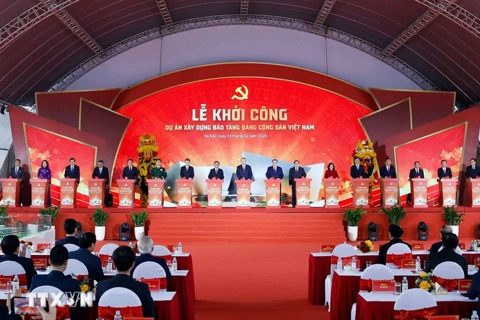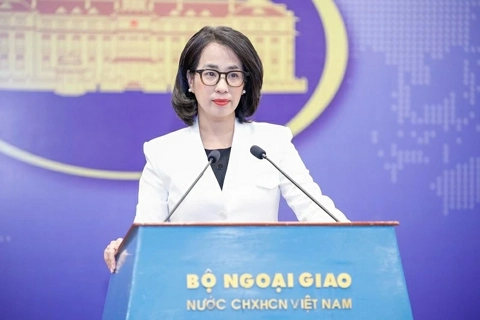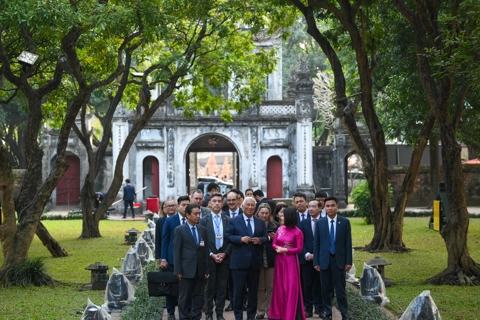Growing together: IFAD’s vision for sustainable Vietnam in new era
THE HANOI TIMES — Vietnam has appeared to be a global model for resilience, adaptability, and increasing focus on sustainable practices and export growth in agriculture. In its transformation to one of the world’s top agricultural exporters, international support becomes indispensable.
The International Fund for Agricultural Development (IFAD) is among the global organizations that have steadfastly supported Vietnam throughout its remarkable transformation from an underdeveloped agrarian nation plagued by persistent food scarcity to a model of agricultural excellence worthy of emulation.
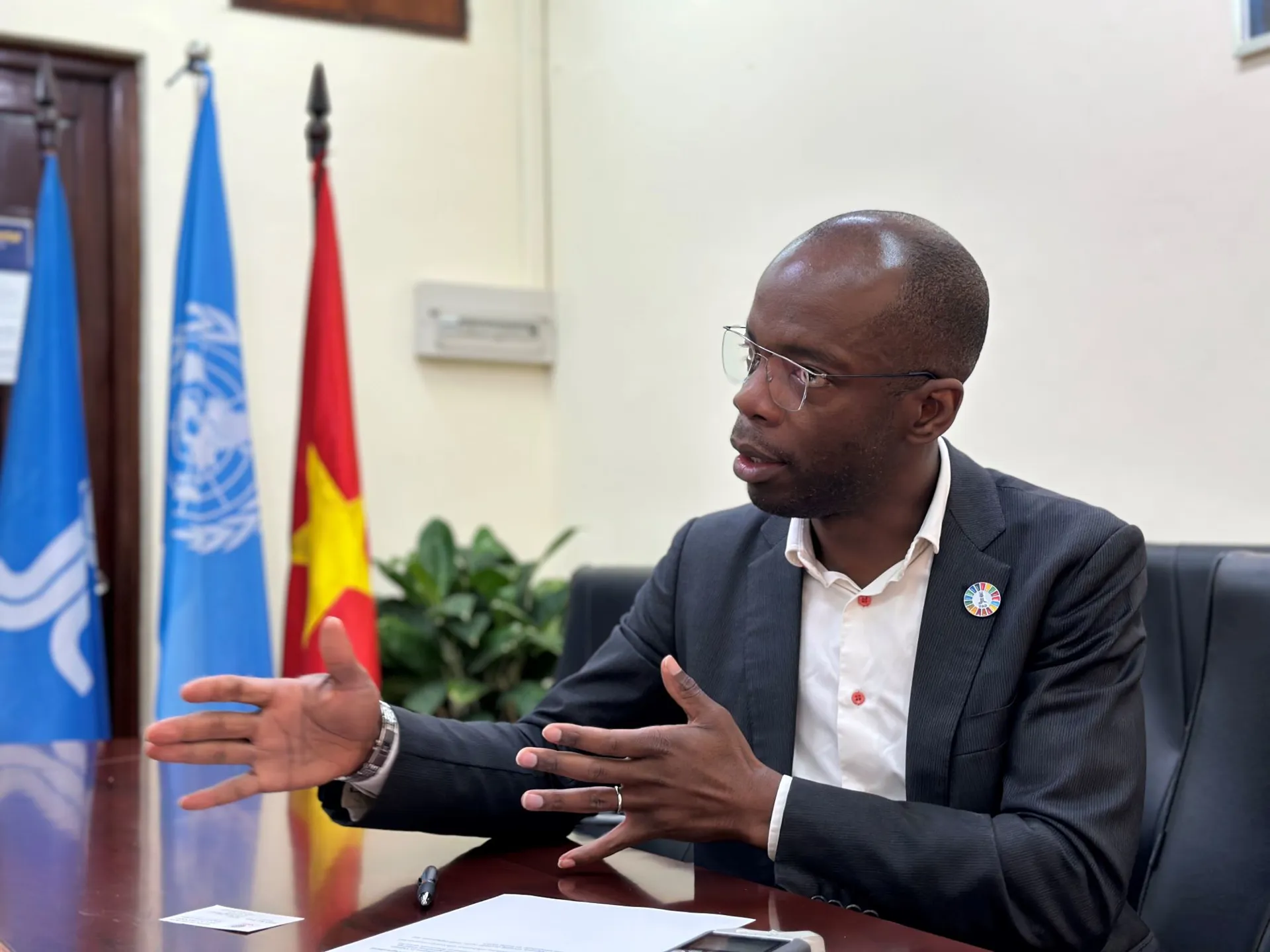
Ambrosio N. Barros, IFAD Vietnam Country Director & Head of Mekong Multi-Country Office. Photo: Linh Pham/The Hanoi Times
In a talk with The Hanoi Times, Ambrosio N. Barros, IFAD Vietnam Country Director & Head of Mekong Multi-Country Office, unveiled the organization’s remarkable 30-year impact in Vietnam. As Vietnam gears up for future ambitions and challenges, Barros shares a bold vision for sustainable agriculture that promises to reshape the country’s rural landscape.
What are the key highlights of IFAD's work in Vietnam over the past 30 years?
For over three decades, the IFAD has been an indispensable partner in driving rural development and agricultural transformation in Vietnam. With over US$860 million in financing committed across nearly 20 projects, IFAD has directly improved the lives of approximately 735,000 rural households, particularly smallholder farmers, who are the backbone of Vietnam’s agricultural economy.
The organization played a pivotal role in strengthening the resilience and prosperity of Vietnam’s rural communities through targeted interventions in productivity enhancement, value chain integration, financial inclusion, and policy reform.
A cornerstone of IFAD’s work has been empowering smallholder farmers to enhance their productivity and connect more effectively with markets. By advocating for inclusive value chain development, IFAD has allowed rural producers to secure fairer prices and better returns for their agricultural products.
Through improved access to affordable rural finance, many households have been able to invest in sustainable farming practices, diversify their income sources, and build long-term economic stability. IFAD has also supported government agencies in implementing strategic policy reforms aimed at fostering inclusive and sustainable rural growth.
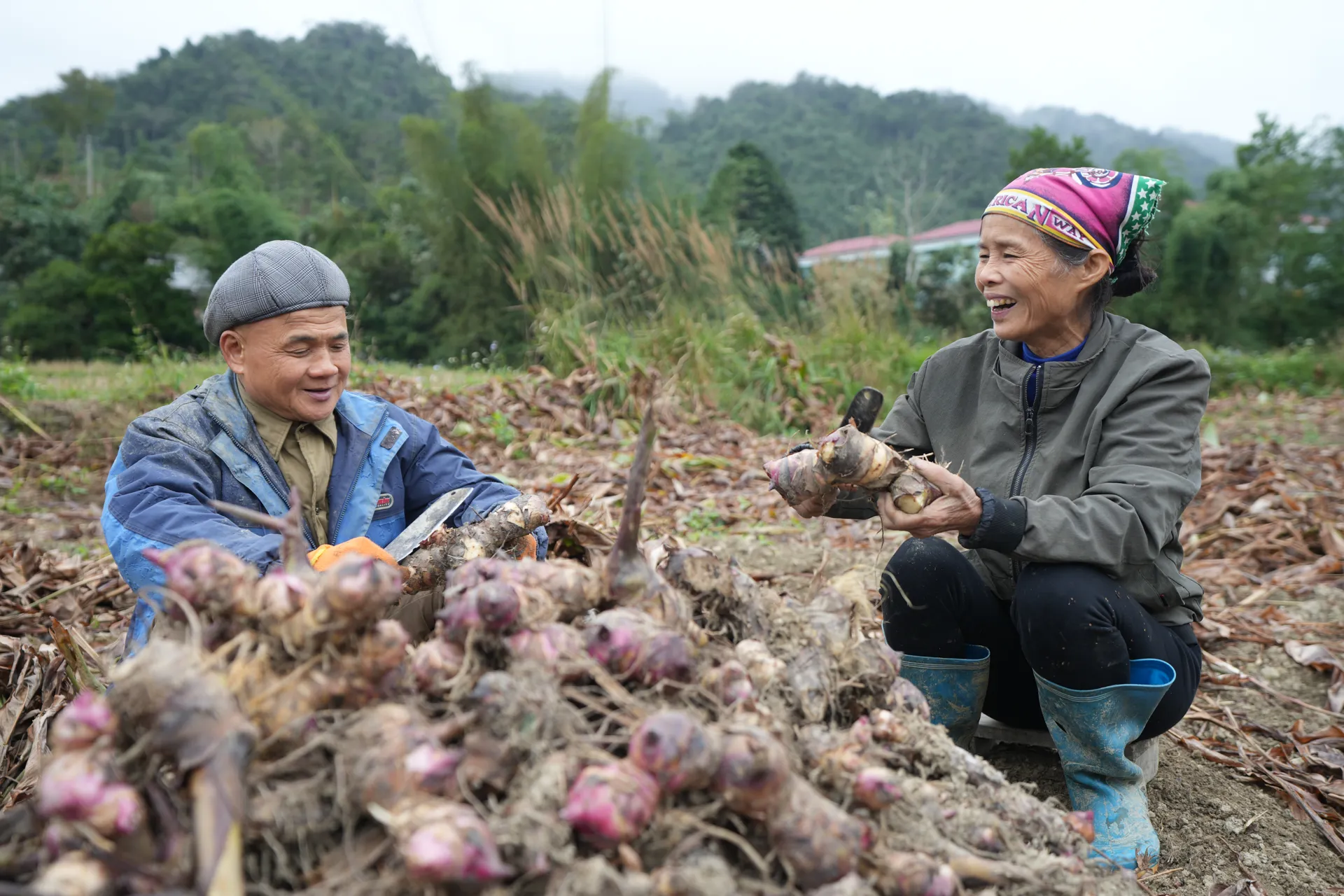
Farmers in the northern province of Bac Kan with bumper Canna indica harvest in Commercial Smallholder Support Project financed by IFAD. Photo: Hoang Pham
Can you share specific success stories from previous projects that have significantly impacted rural communities?
Among its most impactful initiatives is the Adaptation to Climate Change in the Mekong Delta Project, which introduced an innovative model that integrates aquaculture with rice cultivation. This modern approach increased food production and raised household incomes by up to 30%, significantly promoting food security in one of the most climate-vulnerable regions in Vietnam.
In the mountainous Northern Uplands, IFAD’s interventions have successfully introduced climate-resilient crop varieties and sustainable agroforestry practices. These efforts have not only improved agricultural yields but also empowered ethnic minority communities to sustain their cultural heritage while adapting to climate change. This model serves as an inspiration for similar initiatives across various regions facing climate risks.
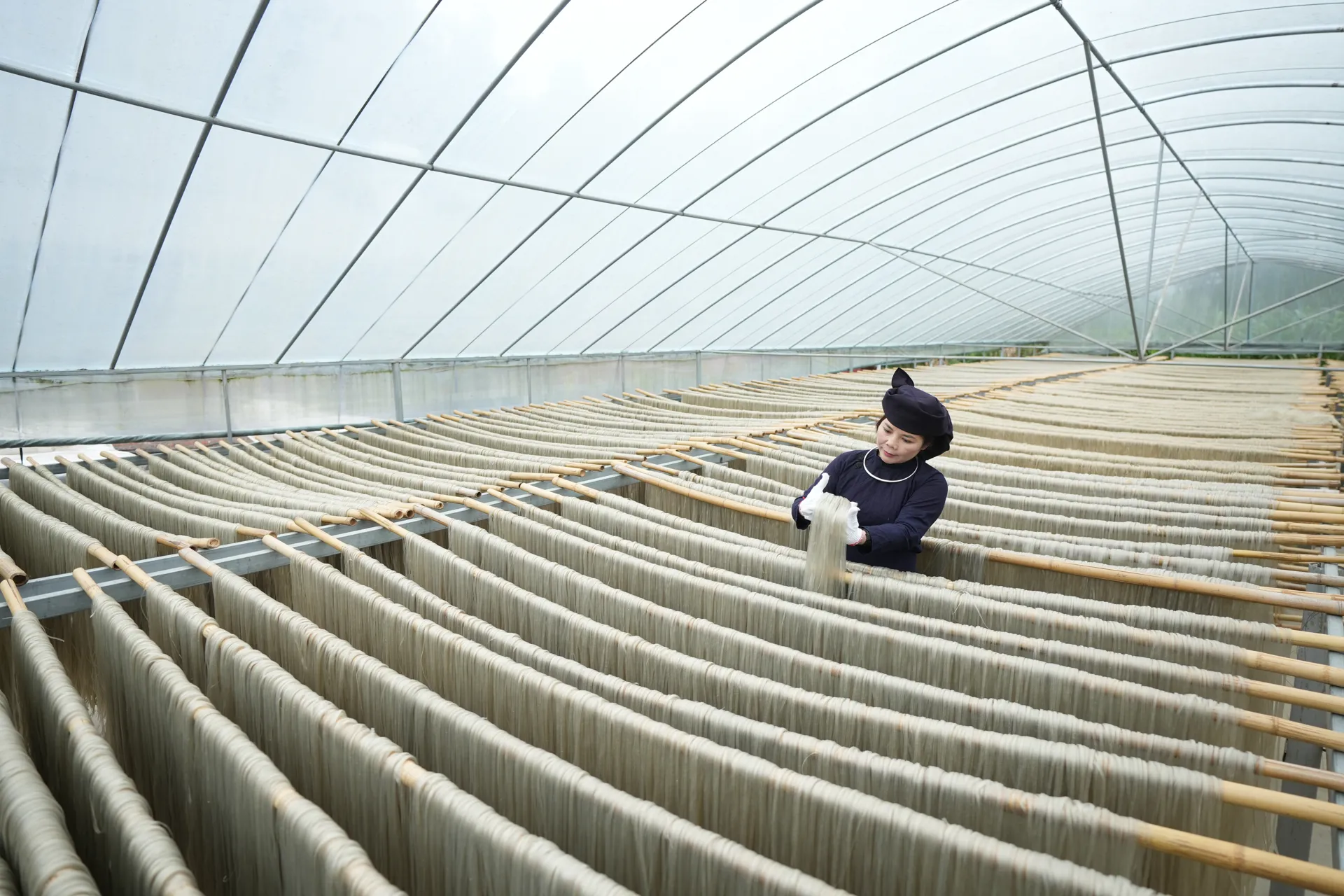
Glass noodle production in the northern province of Bac Kan in a project funded by IFAD. Photo: Hoang Pham
What is your vision for the future of agriculture in Vietnam, particularly in relation to climate-smart practices?
IFAD envisions a dynamic and sustainable agricultural landscape in Vietnam that is rooted in climate-smart practices. This vision includes promoting diversified farming systems, such as organic agriculture and agroforestry, while introducing innovative water management techniques.
Furthermore, incorporating cutting-edge technologies will enhance productivity and environmental stewardship. Understanding the importance of capacity building, IFAD is heavily investing in training and skill development for farmers to foster innovation and adaptability. At the heart of this vision is the cultivation of a resilient agricultural culture, one that harmonizes environmental sustainability with robust economic growth.
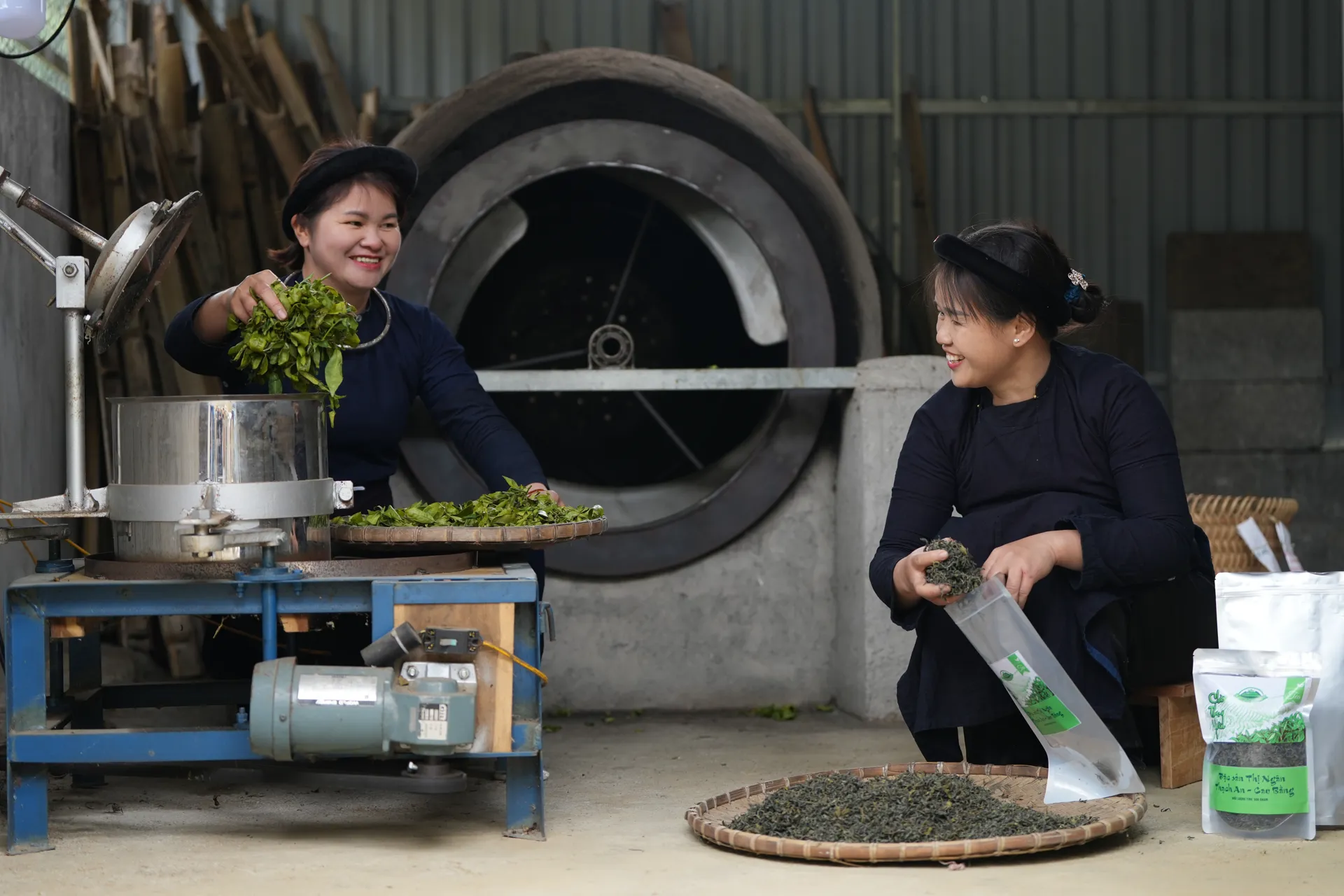
What motivated IFAD to launch the Achieving Emission Reduction in the Central Highlands and South Central Coast of Vietnam to support National REDD+ Action Program goals (RECAF)? RECAF’s impacts on local communities?
In light of the escalating climate crisis, IFAD has recently launched the Achieving Emission Reduction in the Central Highlands and South Central Coast of Vietnam to support National REDD+ Action Program goals (RECAF), targeting some of the most vulnerable provinces in Vietnam.
The project aims to support approximately 100,000 smallholder households, with a strong emphasis on empowering ethnic minorities, women, and youth. It addresses both climate challenges and economic opportunities for marginalized populations. RECAF is expected to enhance agricultural productivity, improve food security, strengthen livelihoods, and contribute to the conservation of forest ecosystems. The RECAF project is set to officially launch in June 2025, representing a significant step towards resilient rural development in Vietnam.
*REDD+ (Reducing Emissions from Deforestation and Forest Degradation) is a voluntary climate mitigation framework developed by the by the United Nations Framework Convention on Climate Change (UNFCCC).
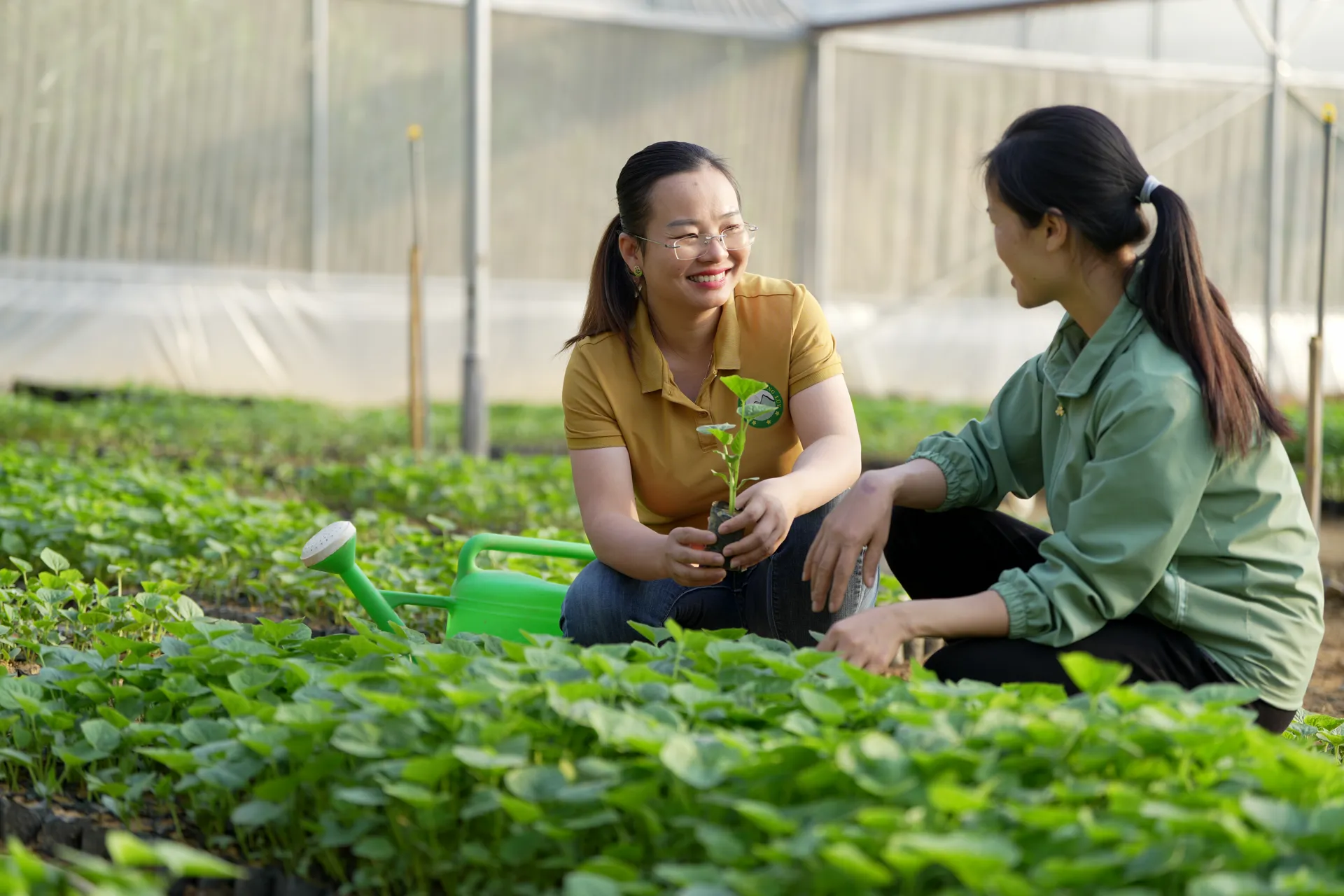
Farmers in the northern province of Bac Kan benefit from IFAD-funded project. Photo: Hoang Pham
How will the RECAF project contribute to achieving the Sustainable Development Goals (SDGs) in Vietnam?
RECAF aligns closely with the United Nations Sustainable Development Goals (SDGs), contributing to multiple key areas of sustainable development. It supports SDG 1 (No Poverty) by helping rural households boost their income and SDG 2 (Zero Hunger) by enhancing food security through sustainable agricultural practices. Through environmentally friendly and climate-resilient farming methods, it contributes significantly to SDG 13 (Climate Action), helping mitigate the effects of climate change on vulnerable communities.
RECAF also makes strong contributions to SDG 5 (Gender Equality). The project places a specific focus on empowering women and promoting their active participation in agricultural decision-making, capacity building, and value chain activities. RECAF helps break down systemic gender barriers and fosters more inclusive rural economies by ensuring that women receive equal access to resources, training, and leadership roles. In alignment with SDG 10 (Reduced Inequalities), RECAF prioritizes support for marginalized groups, particularly ethnic minorities and rural youth.
Addressing structural inequalities and offering these communities opportunities, resources, and market linkages, the project contributes to a more equitable distribution of development benefits. Moreover, RECAF ensures local communities are actively involved in decision-making processes, giving them a crucial voice in shaping their future. This participatory approach reinforces IFAD’s commitment to inclusivity, sustainability, and community engagement, ensuring that rural voices are heard, respected, and empowered.
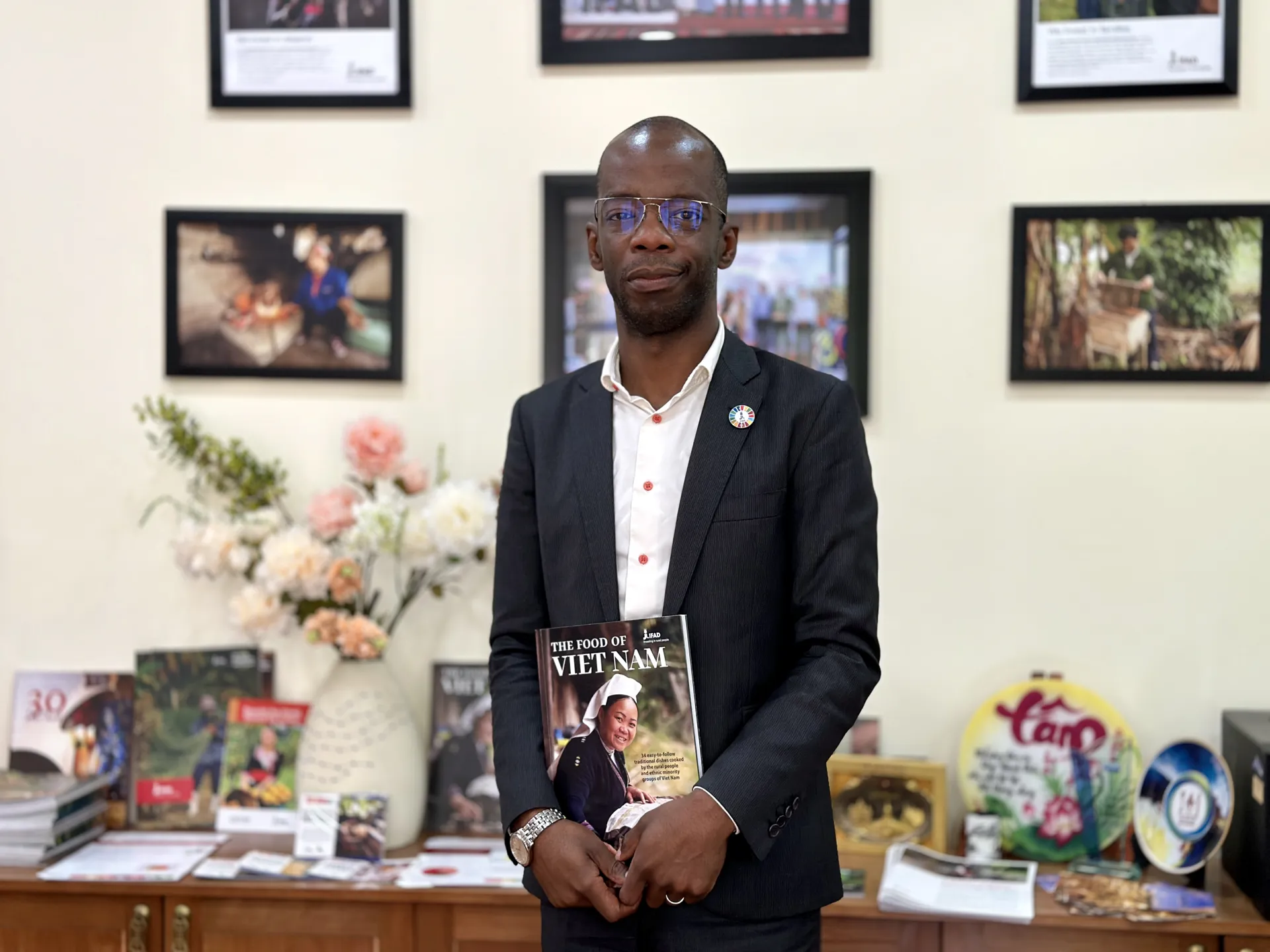
IFAD Vietnam Country Director Ambrosio N. Barros with his love for Vietnam. Photo: Hoang Pham
How do you envision IFAD's role evolving in Vietnam's agricultural landscape over the next decade?
Over the next decade, we plan to build on successful value chain models and promote climate-smart farming practices. Our goal is to scale up innovations and bring positive changes across the sector, helping agriculture face both current and future challenges.
We particularly focus on investing in rural areas and supporting smallholder farmers, who are vital to Vietnam's agricultural success. Offering practical training and valuable resources enables us to empower local communities to adopt new methods that improve their livelihoods and protect the environment for future generations.
Additionally, we will work to connect farmers, researchers, and policymakers, fostering collaboration and sharing knowledge. These networks of support ensure that everyone has access to the best information and tools available.
In the end, we envision a future where Vietnam’s agricultural landscape is not only resilient and sustainable but also a leader in farming innovation. Together, we can drive growth and prosperity for all rural communities, creating a thriving agricultural sector that benefits everyone involved.





